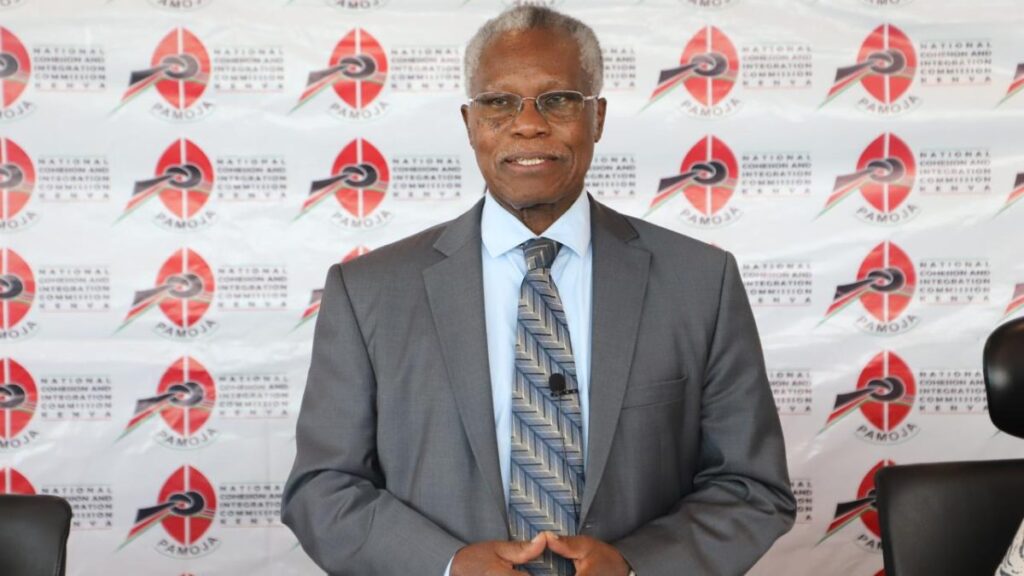An activist has filed a formal petition calling for the removal of the National Cohesion and Integration Commission (NCIC) Chairperson, Samuel Kobia, citing allegations of abuse of office, financial mismanagement, and academic fraud.
The petition, submitted to the Office of the President and the Ministry of Interior and National Administration, urges urgent action against the NCIC boss. It accuses Kobia of engaging in activities that undermine leadership integrity as outlined in Chapter Six of the Constitution of Kenya and other anti-corruption statutes.
According to the petition, Kobia is alleged to have unlawfully signed two letters of appointment for the previous NCIC Chief Executive Officer, Skitter Wangeci. One of the contracts was for three years, while the other extended to five years. The five-year contract was allegedly designed to enable the former CEO to access a mortgage at a favorable 3% interest rate, a benefit reserved strictly for state officers. The petitioner argues that this constitutes fraudulent misrepresentation and abuse of office.
The activist further accuses Kobia of gross financial mismanagement, in violation of Article 201(d) of the Constitution, which requires that public money be used prudently and responsibly. It is claimed that Kobia authorized unauthorized withdrawals of funds from the Commission’s accounts under the guise of “confidential funds” without obtaining approval from the board.
As a result of these alleged financial irregularities, the NCIC is said to have sunk into debt exceeding Ksh200 million in less than three years. Suppliers who rendered services to the Commission have reportedly gone unpaid, forcing some to seek legal redress to recover their dues. The petition highlights the unfairness of this situation, which has left service providers struggling due to unpaid obligations.
In addition, the petitioner raises concerns about Kobia’s academic qualifications, alleging that he holds falsified academic papers. If proven, this would amount to forgery or uttering a false document, which are criminal offenses under the Penal Code. Such claims, the activist argues, call into question Kobia’s legitimacy to hold office in a sensitive national institution mandated with fostering cohesion and integration.
The matter has reportedly attracted the attention of investigative bodies, including the Ethics and Anti-Corruption Commission (EACC) and the Directorate of Criminal Investigations (DCI), for further inquiry.

